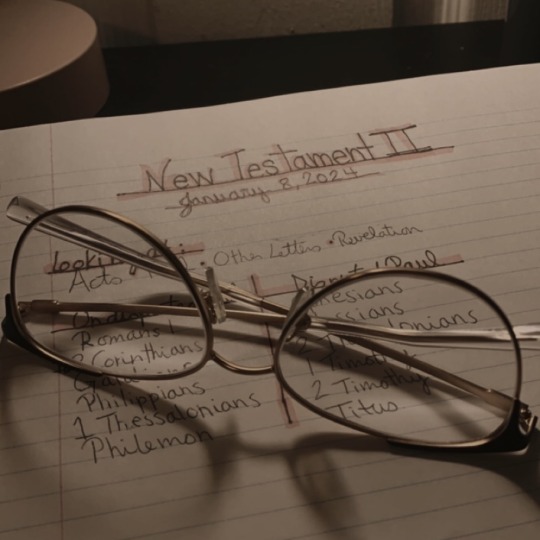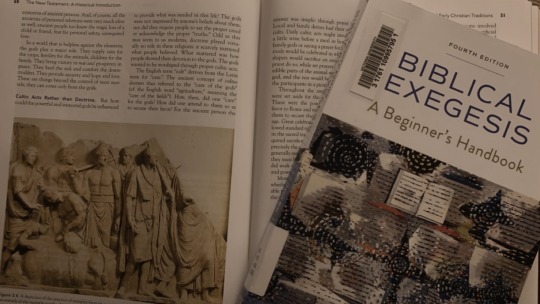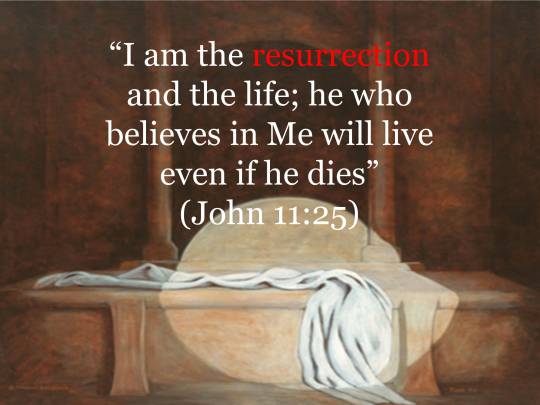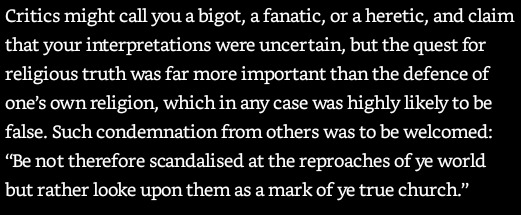#NOT Biblical exegesis
Explore tagged Tumblr posts
Text
I do like this, because it plays into the Calvinist narrative that sure, Christ's redemption yada yada, but some people exist firmly below the floor at which Christ's grace applies.
Because Biblical literacy appears to correlate inversely to foam-flecked jeremiads about Them.
Let demons atone and find forgiveness. Maybe Lucifer was their Pharisee, their Saducee, and led them astray from the Law. Who's to say?
Certainly not Men, when the Son of Man accepts everyone.
hey uhhh but fr the concept of fallen angels existing but risen demons being an impossibility is kind of a great summary of sin in christianity
#who are they#your tired#your poor#your starving masses#NO FREE FOR YOU#if demons can rise up#so can anyone#and that scares some people who haven't actually read about Christ's ministry#christianity#demon: the fallen#wormwood rpg#the world is cruel you must be kind#please remember that Dante is Catholic fan fiction#NOT Biblical exegesis
129K notes
·
View notes
Text
I want to say something about clear communication and objective “listening to understand intended meaning.” But ironically I don’t know if I’ll say it with words that make sense.
Here goes.
When someone says something to you verbally, you take the words they said, the tone they used, the timing, the context of your situation, and all the background knowledge you have of that person in and use that to interpret their meaning. If you’re listening to understand their meaning, instead of listening to hear what you were already looking for before they opened their mouths, but that’s a topic for another post.
Same thing with a book or a movie or even a song (that one’s muddier.) You are supposed to take the words they used, the characters they drew, the facial expressions the actors make, the music timed, and the context you’ve been given, to interpret their meaning. And you’re supposed to do it even more considerately and in even better faith than you would a verbal conversation—because the storyteller isn’t having a spur-of-the-moment chat with you. They took a blank page and agonized and labored over what to create on it, and chose what not to create, to bring you a specific piece of material that was very, very intentional. And beautiful, pleasing, useful, relatable.
There’s a higher level of self-sacrifice in how much a storyteller considered you while communicating (or there should be, and used to be, till storytellers got all “artsy” and started saying idiotic things like “art for art’s sake,” and “you only have to create for yourself,” but again, post for another time.) There should be as much self-sacrifice and willingness to listen to understand intended meaning, even if you don’t like that meaning, in the listener.
Now, here’s what I want to say.
All human communicators, whether it’s your mom on the phone with you verbally or an artist with a painting or a writer and their novel, make communication errors. They say something that’s just a little off, not quite perfectly capturing their “intended meaning.” Then the imperfect human listener also makes mistakes in being objective, even when they’re trying to “listen to understand,” and whatever mistakes-in-communication are there become even more confusing.
BUT.
There is one story and one piece of communication that is 100% perfectly said and perfectly communicates in step with the communicator’s intended meaning. It’s the Bible.
Trusting that this is true about the Bible is it’s own topic. I won’t go into that here. But moving forward on the premise that it is true—
—I was taught exegesis in a book called Grasping God’s Word which is difficult to complete but intensely worth it. Because it will actually not only teach you how to “listen to understand intended meaning” from the ONLY place where that’s of life-or-death importance—but the tools it gives you also would apply to trying to “listen to understand the intended meaning” of all communication.
It puts your brain through exercises specifically intended to work out the muscles that hone what you can know for a fact, about the communicator and reality and how much of that needs to be relevant to interpreting their work, and what you can drop. Plus how to drop your prejudices, your preconceived notions, your experiences, anything that could lead to interpretational error.
It’s necessary to learn those things because if there’s a supreme all-powerful Creator who wants to be in a relationship with you, His creation, and has given you a written Word to explain it all, you better understand what He’s really saying, not just “what you think He might be saying.” If it weren’t so urgent and so necessary to learn how to listen to God with the intent to understand, you know what we’d do?
We’d start saying things like, “well, that’s just your interpretation.” And “there’s no right or wrong.” And “that’s true for you, not true for me.” And then suddenly nobody can communicate anything, because we’re not just applying that “it’s unimportant what the Author meant” to God. We’re applying it to all communicators. Suddenly all that matters is you, you, you. How do you interpret it? What makes it meaningful to you? Nevermind what was actually said—how do you feel about it?
And suddenly, fandom culture.
Basically what I’m saying is, if you study Biblical exegesis, you solve your illiteracy problem. After all, He kind of invented words, communication and listening.
#Grasping God’s word#literacy#state of the fandom#writing#writing advice#active listening#biblical exegesis#storytelling#stories#meta
34 notes
·
View notes
Note
I would listen to a audio drama about "your boy jonah" but also, tell me about your boy! Here is a free space to ramble. Please info-dump.
Free space to ramble?! Don't mind if I do!
So, in case anyone is unfamiliar with the story of Jonah, it begins with Jonah minding his business and suddenly being called upon by God to go to Ninevah [the capital city of the Assyrian empire] to call them out for their sins. Instead, Jonah seals his place in my heart by running away from God.
I just find it so immediately endearing that his reaction to being given a divinely ordained job to do is to absolutely nope the fuck out and run for the hills. It's not just hilarious, but it also feels so honest? Like yeah sometimes we know rightly what we're supposed to do, either because of the leading of the spirit or because of our own morals, and sometimes it's fucking terrifying!!
So he runs away, he gets on a boat to sail off to Far Off Lands (poss. southern Turkey) and obviously... God knows. Because it's God. You can't just duck behind a tree and suddenly God forgets you're there lol And God is big mad and sends a storm that threatens to break the ship into matchsticks. The sailors are terrified - I imagine them as these hardened sea-faring men who are used to all sorts of things, and this storm is so fierce they're absolutely terrified.
And Jonah... is fast asleep. Conked the fuck out on one of the lower decks, like he isn't moments from being smithereened. Running away from God is a tiring business, I guess! Also, as a chronic procastinapper, I can't help feeling like he just felt like he had too much on his plate and decided napping is way less scary that That Whole Mess.
So the captain drags him up and demands that he pray to his god because clearly the gods of the sailors are not paying attention lol But they also want to know where the storm came from and why, so they draw lots to see who's to blame? And of course Jonah draws the short straw.
And then this bit I imagine Jonah being super sheepish about OK. Because in this era and place, it was quite normal to accept that other people's gods were real and powerful, but they just weren't your gods. But different gods have different areas of power, so the sailors ask Jonah who his god is. And very grudgingly, Jonah admits that ummm yeah ok so actually his god is... the one who created the sea and the land.
And I imagine there's this moment of absolute silence as these sailors take in the fact that this guy has pissed his god off and who's his god again? Oh yeah, only the one who MADE THE OCEAN which is currently trying to KILL THEM.
"So they picked up Jonah and hurled him into the sea."
But Jonah doesn't drown! God sends a fish to swallow him up, and he sits in the fish for three days and prays while he's in there, because actually all things considered it was pretty neat of God to send a fish to swallow him instead of letting him drown and he's like "I think maybe I have got close enough to death and I would like to stop having an adventure now and go back to being all the way alive."
Which is very cool having his time in the fish being this sort of pseudo-death? Like he was getting a little taste of it. And he even talks about it as being in Sheol, and being out of sight of God and longing to be alive and back where God can see him.
So God tells the fish to vomit him up and tells Jonah again to go to Ninevah, which this time he does! It's a huge city, it takes three days to walk across it, but Jonah made a promise and he sticks to it. He walks and talks and the city repents and God relents from whatever punishment he was going to send.
Which, in a turn that never fails to touch my heart, makes Jonah... absolutely fucking livid. He is so mad about this decision. He's like, "I fucking knew it!! I knew you weren't going to smite these fuckers!" and God is like ??? excuuuuse me ???
And Jonah - I love him so much - he storms off, he stomps out of Ninevah and builds himself a little hu and he sits in his hut and he stares at the city, wishing hellfire and damnation on everyone in it, and sulking like nobody on earth. He is raging and I love it.
But it's the fucking Assyrian desert, it's hot as balls and even in his wee hut, Jonah's got the sun beating down on him. And God makes this plant grow next to him for shade, which Jonah is pretty pleased about - until the next morning, God sends a worm that attacks the plant and kills it. And also throws in some scorching winds and fiery sun for good measure.
And Jonah's lying there about to pass out and he's like, "I would literally rather be fucking dead" and then we get my favourite exchange in the whole Bible:
But God said to Jonah, “Is it right for you to be angry about the plant?”
“It is,” he said. “And I’m so angry I wish I were dead.”
I just love it!! He's having none of it! He is furious and he is feeling more righteous and miserable than any angsty teenager ever could and he's telling God straight out, "You have pissed me off like nobody has ever pissed anyone off before" and I love him so much!!
And God points out that he's that angry about the plant dying, which he didn't even grow or tend to, but somehow it's not fair for God to not be particularly keen on destroying an entire megatropolis full of people and animals who by the way God is responsible for and cares for? Double standards much? And the book ends! It's made its point and off it fucks.
Also there's a bit at the end there where it describes the thousands and thousands of people in Ninevah as "not knowing which is their left hand and which is their right" which I assume is a metaphor for not knowing right from wrong but which I also just love as such a read. Like, "Really? You expect me not to look after these people? Look at them. They're morons, Jonah. They're the kind of morons who would think, oh, I don't know, that they could hide from God in a boat."
I just love how angry Jonah is, and how afraid, and how human! And I love that he has this sassy back and forth with God and that he gets angry at God and argues and has to get put in a fish for a time out. It feels like such a close, bickering sort of relationship and I think the world would be a better place if more people felt like they could look God in the eye and say, "YES! I AM ANGRY!! I AM SO ANGRY I COULD DIE!!!"
#monstrous askbox#come for the podcasts stay for the biblical exegesis#you dont get THAT on the magnus archives
92 notes
·
View notes
Text



Monday January 8th
I’m starting the new semester off right with a study session in the library this afternoon. I had my first class this morning. I am so glad to be back into a routine. I missed uni.
#aelstudies#studyblr#university#dark academia#university studyblr#dark acadamia aesthetic#academia aesthetic#study motivation#books#study#biblical exegesis
18 notes
·
View notes
Text
Theological Implications of Jesus' Resurrection for Salvation
Jesus’ resurrection is an essential element in soteriology. In fact, every writer of the NT assumes that Jesus was resurrected from the grave and treat it as an event that took place in time and space. Paul wrote that Jesus “was raised on the third day according to the Scriptures” (1 Cor 15:4), that He was “the first fruits of those who are asleep” (1 Cor 15:20), and that “having been raised from…

View On WordPress
#Apologetics of Faith#atonement#Biblical Apologetics#Biblical Exegesis#Biblical interpretation#Biblical theology#Biblical Witnesses#Christian apologetics#Christian beliefs#Christian doctrine#Christian faith#Christian Hope#Christian living#Christian salvation#Christian theology#crucifixion#Divine Atonement#Early Christian Beliefs#Easter#Easter Theology#faith#gospel message#Historical Jesus#how important is the resurrection of Jesus#importance of Jesus resurrection#is resurrection important#is the resurrection essential to the gospel#Jesus Christ#Jesus resurrection#justification
11 notes
·
View notes
Text
also, funny moment when reading today’s entry, when captain bildad was introduced, i was like “bildad? isn’t that one of job’s friends?”
*googles*

me: hah! i knew it…… wait, how did i know that?
#ik i’m doing biblical exegesis but for the record i have never done a deep dive on book of job#so im not sure how or when i picked up that information#whale weekly#local man picks up more biblical knowledge than he knows what to do with
29 notes
·
View notes
Note
Forgive me if you’ve spoken about this before, or if my assumption is incorrect, but I think it would be interesting to hear your opinion on the interpretation of Jesse as a Christ-like figure considering from what I’ve gathered you’re a Christian? A lot of people who I see draw comparison between Jesse and Christ (including myself) are either not religious or have had a negative experience with religion so I think it would be interesting to hear from someone who has a different experience.
I think the main problem with that interpretation is that none of Jesse’s suffering is particularly redemptive or self-sacrificial, which would be the baseline requirement for him to be a Christ-figure.
Don’t get me wrong, a lot of bad things happen to him: but it’s never because he’s consciously choosing that suffering for the sake of another person. The one exception to this might be continuing to cook for Jack's gang to keep them from killing Brock, and even that is a coerced choice between two evils—and Brock’s mother would never have died, Brock would never be in the position of being threatened in the first place, if he was not a pawn in Jesse and Walt’s codependent self-perpetuating psycho-drama.
That’s what it all goes back to. Listening to Walt, being Walt’s partner in crime—gets Jesse beat up by criminals or used as emotional leverage against him. The overwhelming guilt Jesse feels all stems from things he did to help Walt, save him, in service of their mutual criminal partnership or out of wrath/hurt at what Walt has put him through.
It’s because of his cooperation with evil that Jesse (and his loved ones) suffer, and that makes him far more of an Adamic figure than a Christ figure.
For my money, the closest we ever get to a truly Christ-like act in the show would be Flynn throwing himself between his mother and father to protect her, knowing full well that Walt could easily overpower him and acting under the assumption that his father has just murdered another member of their family. Junior is as close to an innocent as Breaking Bad has—the only character more innocent than him is the baby—and if he had somehow ended up injured or dead by Walt’s hand because he was shielding Skyler, that would be truly laying down his life for another person. Respect for Flynn, you were more than breakfast memes.
I don’t necessarily know how useful it even is to think about this particular narrative in this way, tbh. Breaking Bad is not an allegorical or didactic show, nor is it particularly moralistic (though it is keenly interested in morality.) It can be read on a realist, psychological level, and through the lens of noir, crime and western genres. It’s definitely not consciously symbolic.
But, if you were going to make the case for a Biblical symbolic interpretation, the glaringly obvious one is Walter White as the Luciferian figure par excellence. Is there a fictional character who more perfectly exemplifies the sin of pride than Walt? A brilliant scientist (Lucifer was, after all, the Angel of Light—the greatest of all the angels) who makes a spectacular fall from grace and proceeds to drag many others down to his level.
So, if Mr. White is “the devil”, then that would make Jesse his Adam. Exiled from the garden of (comparative) innocence in the pilot because he agrees to the partnership between them (his ‘deal with the Devil’, so to speak) Jesse then spends the next sixty-some episodes making a lot of terrible choices, directly and indirectly leading to a lot of pain and suffering, because of that partnership. That’s the entirety of salvation history (as Christians understand it) in a nutshell. This is Jesse Pinkman’s equivalent of taking the apple of the Tree of Knowledge of Good and Evil—his original sin.
Man is made in God’s image, and like Adam and all his sons, Jesse still has a conscience—the spark of divinity lives in him. He still wants to do the right thing, but his relationship with Walt constantly pulls him back into the world of crime and evil. By the end of the show he’s become a literal slave to sin—his ability to make the blue meth, the gift his devilish mentor gave him that helped Jesse attain honor, power and money in the drug trade, now keeps him literally shackled in a hole in the ground. It’s not exactly subtle, is it?
But he does break free in the end. Not from his literal slavery—Walt has to be the one to free him from that—but from evil.
Jesse’s refusal to end Walt’s life at his command is him simultaneously breaking free of Mr. White’s control over his actions and refusing to continue the cycle of violence his old teacher fostered and Jesse enabled at every turn.
He does it all on his own. He makes the choice. After a lot of suffering, so even if there’s not a salvific figure in this universe persay, there is purgation.
(Ironically, Walt shielding Jesse with his body and taking a literal bullet for him would be an almost textbook Christ-like sacrificial death....except Walt was the person who set off the gun in the first place. Also the idea of putting Walter White and Jesus in the same thought, let alone comparing them....repels me for what I hope are obvious reasons, lol.)
What I liked about El Camino was Jesse finally having serious moral growth and maturity (not shocking that Walt had to die for it to happen.) The scene where he calls his parents, absolves them of blame and takes responsibility for his own actions was such exponential growth for him—the boy becoming a man. And his ultimate fate is to spend the rest of his life in a kind of exile. All of this comes at such a high cost, but there is atonement. It does all mean something.
#jesse pinkman#walter white#breaking bad#breaking bad meta#asks#uh yes i am a christian also anon you guessed right#brba#Christianity#BrBa as biblical exegesis#Because thats how I roll
21 notes
·
View notes
Photo

Holding forth the word of life; that I may rejoice in the day of Christ, that I have not run in vain, neither labored in vain. (Philippians 2:16)
See what immediate prizes he sets before them: “The stars,” he says, “possess the principle of light and you the principle of life.” What is this “word of life”? It means having the seed of life, that is, the beginnings of life, possessing life itself. - Saint John Chrysostom
12 notes
·
View notes
Text
Then he came again to Cana in Galilee where he had changed the water into wine. Now there was a royal official whose son lay ill in Capernaum. When he heard that Jesus had come from Judea to Galilee, he went and begged him to come down and heal his son, for he was at the point of death. Then Jesus said to him, "Unless you see signs and wonders you will not believe." The official said to him, "Sir, come down before my little boy dies." Jesus said to him, "Go; your son will live." John 4:46-50 NRSV This royal official (βασιλικὸς - basilikos) likely was a servant of Herod Antipas. 1, 2 This individual probably was someone of greater wealth and influence than the average resident in Galilee. Yet, his son is ill, and at the point of death. All his power and influence cannot save his "little boy". I grew up with the notion, like many of us do, that my success was what determined my value as a person. I believed that if I were able to have a successful career, earn more money, and gain more influence I would be happier. I would have more freedom, be able to sort out my own problems, and become the master of my own destiny! Nothing could be further from the truth, and in this passage we can see the error of this notion made strikingly clear. This royal official should be able to leverage his wealth and influence to get the very best of care for his son, but even this won't save his life. He's probably tried everything in his power, but has been unsuccessful. He needs Christ. I think many of us, myself included, envy the wealth and power of men like the royal official out of a desire for control. When we're faced with difficult circumstances it's easy to believe that having these earthly goods will help us resolve our problems. There is no denying that having money and power can give you access to, among other things, better quality health care, but ultimately our fate still rests firmly in the hands of God (Ecc 9:11-12). This passage reveals that wealth and power do not render us immune to suffering.
#christianity#catholicism#jesus#gospel of john#exegesis#bible quotes#biblical commentary#disordered paradigms#wealth#power
2 notes
·
View notes
Text

@inneskeeper this seems relevant to your interests

BUT WAIT! THERE’S MORE! SHE DOIBLES DOWN!

#biblical interpretation#history of exegesis#heresiology#everything old is new again#which I guess is what you get when you try to inject decisive historical transformation into cyclical rituals#ayway mer crimmus#stacking tumblr conversations
38K notes
·
View notes
Text
Exodus 1:1-6 Exegesis
In-Depth Exegesis of Exodus 1:1-6 – Pastor Aamir Din Home | Media | Contact In-Depth Exegesis of Exodus 1:1-6 Published on: May 5, 2018 Introduction Exodus 1:1-6 serves as the foundational introduction to the entire narrative of the book of Exodus, which traces the story of Israel’s deliverance from slavery in Egypt. This passage offers a genealogical list, establishing the historical and…
0 notes
Text
Christ, Antichrist, and the Coming Apocalypse
youtube
#the little book of revelation#ελικιτίμ#bible study#last days#biblical exegesis#ek#elikittim#το μικρο βιβλιο της αποκαλυψης#youtube#YouTubeEliKittim#EliKittimYouTube#bible prophecy#biblical interpretation#bible#biblical hermeneutics#endtimes#bible interpretation#eli of kittim#youtubebible#Christ#antichrist#the apocalypse#armageddon#great tribulation#rapture#biblical eschatology#end of the age#end of the world#world war 3#nuclear war
1 note
·
View note
Text
To justify resisting progress in areas like women's ordination, women preaching to men, same-sex marriage and so on, fundamentalist Christian theologians engage in some fancy exegetical footwork. Taking the gendered values of 'traditional' marriage, they read them back into the main biblical texts, like Genesis 1 and 2.
"In/Out: A Scandalous Story of Falling Into Love and Out of the Church" - Steph Lentz
#book quote#in/out#steph lentz#nonfiction#justification#resistance#progress#ordination#preaching#equality#same sex marriage#fundamentalism#christianity#theologians#exegesis#genesis 1#genesis 2#traditional marriage#bible passage#biblical marriage
1 note
·
View note
Text

Newton believed that the 144,000 virgins mentioned in the Book of Revelation referred to a select few who were chosen by god to understand the truth of the prophecies.
These "saints" are not necessarily Christians. They are not even necessarily virgins, but are "undefiled by women" in the sense that they are sexually pure and not given to any perversions.
In addition, they also follow a fairly simple moral code:

In general, these chosen few can be interpreted as the truth seekers and critical thinkers who are met with hostility by those who would silence and deplatform them. Newton is encouraging here, considering such treatment to be a badge of honor.

0 notes
Text
Women Disciples: Jesus's Call to Mary of Magdala
John has put it on record that Jesus called women as his disciples and commissioned them to apostolic ministry just as he did with men, and we can do no less today. #MaryMagdalene #WomenDisciples #WomenApostles #John20
Though Mary of Magdala is a well-known figure in the gospels, she is not introduced by name until Jesus’s crucifixion in John’s Gospel (John 19:25). John doesn’t explain who she is, or what her relationship is to Jesus or his family, but there she is, with John and Mary, Jesus’s mother. That alone says how important she was to Jesus’s inner circle. The Morning of the Resurrection 1886 Sir Edward…

View On WordPress
#archaeological#Archaeology#Bible#Bible study#biblical teaching#biblical women#Christ#Egalitarian#equalitarian#exegesis#exegetical teaching#expository teaching#feminism#feminist#Jesus#Jesus Christ#Jesus Messiah#mary magdalene#Mary of Magdala#Messiah#scriptural teaching#scriptural women#Scripture#WOmen#women apostles#women deacons#women disciples#women in Scripture#women in the Scriptures#women of the Bible
0 notes
Text
Unlimited Atonement
Unlimited atonement is the biblical teaching that Jesus died for everyone. Through His sacrificial death on the cross, Jesus bore the wrath of God by taking upon Himself the sins of all humanity and bearing the punishment that was due for our sins.
Unlimited atonement is the biblical teaching that Jesus died for everyone. Through His sacrificial death on the cross, Jesus bore the wrath of God by taking upon Himself the sins of all humanity and bearing the punishment that was due for our sins. His death on the cross paid the price for the sins of everyone. Jesus’ death for sins is the foundation for reconciliation with God because God judged…

View On WordPress
#1 Corinthians 15:3-4#1 John 2:2#1 John 4:10#1 John 4:14#1 Peter 3:18#1 Timothy 2:4#1 Timothy 2:6#1 Timothy 4:10#Acts 16:30-31#Acts 4:12#assurance of salvation#atonement for the world#Biblical Exegesis#Calvinism#Christ’s death for all mankind#Christ’s finished work#Christ’s obedience#deity of Christ#divine election#Divine Justice#divine love#doctrine of atonement#Ephesians 2:8-9#eternal life#Eternal salvation#eternal security#evangelical theology#faith alone#faith in Christ#faith response
0 notes